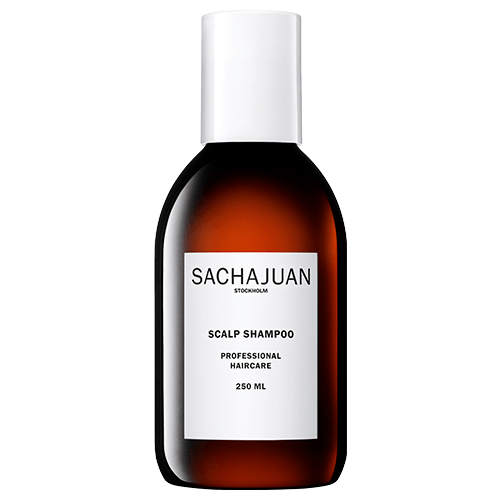
Treatment for Psoriasis of Scalp
Skin conditions are a very common occurrence that more people than you may realise suffer from. Although having a skin condition is common, this doesn’t mean you need to suffer in silence. There are ways you can ease your symptoms by implementing a treatment plan. A very common skin condition people suffer from is psoriasis. Scalp psoriasis can benefit from particular psoriasis medication, psoriasis remedies and different treatment plans that may relieve the issues that arise with psoriasis. We’ve taken an insightful look into the various scalp psoriasis treatment ideas and regimes that you may want to consider trying.
What is Scalp Psoriasis
Scalp psoriasis is a skin condition that causes red and crusty patches of skin covered with silvery scales. This condition can look different on each person depending on their skin tone and can occur on parts of the scalp or all over. Scalp psoriasis can be caused by several factors. For one it can be genetic and be passed down through families. There are also environmental factors that could encourage psoriasis. These are:
- Skin trauma
- Sunburns
- Medications
- Stress
- Inflammatory or autoimmune health conditions
Scalp psoriasis is not contagious and some doctors believe it could be a result of a compromised or weaker immune system. It is believed that this issue with the immune system causes skin cells to grow faster than usual. This rapid turnover of cells results in the build-up of dry, scaly skin patches.
Risk factors of psoriasis are family history and smoking. Anyone can develop psoriasis but these factors can increase your chances.
There is also the common case that many people who are predisposed to psoriasis go years without displaying symptoms. Symptoms are often not brought on until an environmental factor acts as a trigger. Some common triggers are:
- Infections such as strep throat or skin infections
- Weather such as cold or dry conditions
- Injury to the skin
- Smoking
- Heavy alcohol consumption
- Certain medications – such as lithium and high blood pressure drugs
- Rapid withdrawal of oral or injected corticosteroids
Symptoms of Scalp Psoriasis
Some potential symptoms of scalp psoriasis are:
- Reddish patches on the scalp – can be very noticeable or thick and inflamed
- Dandruff-like flaking and silvery-white scale – can look a lot like dandruff and flake off
- Dry scalp – the scalp may be so dry that the skin cracks and bleeds
- Itching – this is the most common symptom. For some, this is mild whereas for others it's very intense.
- Bleeding – scratching your scalp psoriasis due to its itchiness can lead to bleeding
- Burning sensation or soreness – the scalp can burn and feel extremely sore
- Temporary hair loss – scratching the scalp can cause hair loss
Complications of Scalp Psoriasis
For some people, scalp psoriasis can be mild and hardly noticeable. Whereas for others, it can be much more severe and the symptoms more intense. It can also last a much longer time with complications regularly occurring. It can cause thick, crusted patches and sores that lead to intense itching which can affect your sleep and everyday life. This disruption to your routine can have many knock-on effects like unproductivity or a build-up of stress and anxiety. Excessive scratching which may occur due to psoriasis can cause bleeding and hair loss which can have negative effects on a person’s self-esteem and mental well-being. When it comes to psoriasis, it is essential to receive scalp treatment as soon as possible. Letting scalp psoriasis go untreated can lead to not only the continuation of its symptoms, but other complications also may occur. Some of these are:
- Cardiovascular disease
- Psoriatic arthritis
- Type 2 diabetes
- This is why we recommend seeking help as soon as you notice symptoms to receive the appropriate psoriasis scalp treatment and ease your symptoms and reduce the risk of any further complications. Scalp psoriasis is a manageable illness, it just requires the appropriate action.
How is Scalp Psoriasis Diagnosed
The way you combat scalp psoriasis is by taking immediate action. If you notice any symptoms of psoriasis such as new, excessive itchiness or the formation of any dry skin, even small, then you should contact your healthcare provider. Once you contact your healthcare provider, explain to them your concerns and accurately describe your symptoms as clearly and honestly as possible. Your healthcare provider will then go on to ask questions about your overall health.
This will allow them to gain a good understanding of your overall health and gauge an idea of what the issue may be due to the possible causes of environmental factors that have affected it. They will then go on to examine your skin, scalp and nails. This will give them a good visual understanding of your condition. Your healthcare provider may decide to take a small sample of skin to biopsy it for examination under a microscope. This can help to determine the type of psoriasis and rule out any other potential disorders. This will mean you can receive the correct scalp psoriasis medication or treatment.
How do You Prevent Scalp Psoriasis
You can’t necessarily prevent scalp psoriasis from developing beforehand especially because it tends to be unknown that you have the condition until you start displaying symptoms. However, there are of course scalp psoriasis remedies you can try once you know you have it as well as precautions you can take to prevent the spreading of it. Some of these precautions are also environmental factors that would reduce the likelihood of suffering from psoriasis. Some of the things you can do to prevent the spread of psoriasis are:
- Eat a nutrient-dense diet
- Avoid smoking and alcohol – smoking and alcohol can aggravate psoriasis so avoiding or at least reducing your consumption of these will reduce your likeliness of psoriasis.
- Protect your skin – trauma to the skin can lead to psoriasis patches so avoiding this is a good way to avoid psoriasis.
- Decrease stress – ongoing stress is linked to psoriasis so look into adjusting your routine to allow yourself more managed downtime.
- Sleep – this can help your immune system which (a weaker one) is usually a cause of psoriasis.
- Reconsider certain medications – discuss with your doctor the possibility that one of your medications may be causing your psoriasis to flare and see about making a suitable substitution.
- Use lotion – dry skin can cause psoriasis so having moisturised, hydrated skin can prevent this.
Treatments for Mild Scalp Psoriasis
If you do develop symptoms you will want to seek psoriasis treatment as soon as possible. As there is no scalp psoriasis cure, the way scalp treatment works is to manage the symptoms. There are a variety of natural treatments, prescribed medications and at-home scalp psoriasis remedies you could try. Some over-the-counter products you could try are:
Salicylic Acid – a peeling agent that is available over the counter and in prescribed shampoos and soaps. It softens scales which makes them easier to remove.
Coal-tar products – available as shampoos, gels, creams, ointments, foams and soaps. They can help skin growth as well as reduce inflammation, itching and scaling.
These are all topical treatments. There are also home remedies you can try for scalp psoriasis:
- A heavy cream
- Apple cider vinegar on the scalp
- Spend some time in the sun
- Try bath salts in your bath
- Apply capsaicin
- Include turmeric in your meals/as a supplement
- Tea tree oil
- Soak in oats
- Meditation and yoga
- Wrap it – put cream on your skin then cover it in plastic wrap
- Omega-3 fatty acids
- Oregon grape
- Mediterranean diet
- Aloe vera
Tips for Managing Scalp Psoriasis
If you’ve come up with a treatment plan to help manage your scalp psoriasis, then it is incredibly important that you follow this properly. Below is a list of tips for how to manage scalp psoriasis:
- Avoid scratching – try not to cause any more pain, irritation or soreness, even though it is difficult.
- Relieve the itch by treating psoriasis – use the appropriate medications, creams and remedies to relieve this itch.
- Shampoo gently – rubbing, scrubbing or scratching makes scalp psoriasis worse.
- Remove the scales with care – to treat scalp psoriasis you need to loosen and remove the scales of your dry skin.
- Use a recommended scale softener
- Use the products advised by your healthcare provider or dermatologist
- Try not to stress out – an increase in stress will cause psoriasis to flare up
- Systematic and UV treatments – some healthcare providers recommend UV or targeted laser treatments
- Stick to your treatment plan – one of the most effective things you can do is stick to the curated treatment plan. Being consistent in your bid to manage your psoriasis will reduce the likeliness of any intense flare-ups.
When to See a Doctor
If you are a sufferer of psoriasis, or specifically scalp psoriasis, you can combat this with either prescribed products or over-the-counter products as well as home remedies. These over-the-counter products can be bought at pharmacies and health and beauty stores such as Oz Hair and Beauty.
If you are concerned about your psoriasis, contact your healthcare provider. They will be able to advise you on how to manage your condition and examine the health of your scalp. If your condition is flaring up or your symptoms are worsening, you should contact a healthcare provider to reassess your current treatment and see about any adjustments you can make.
categories
featured products









